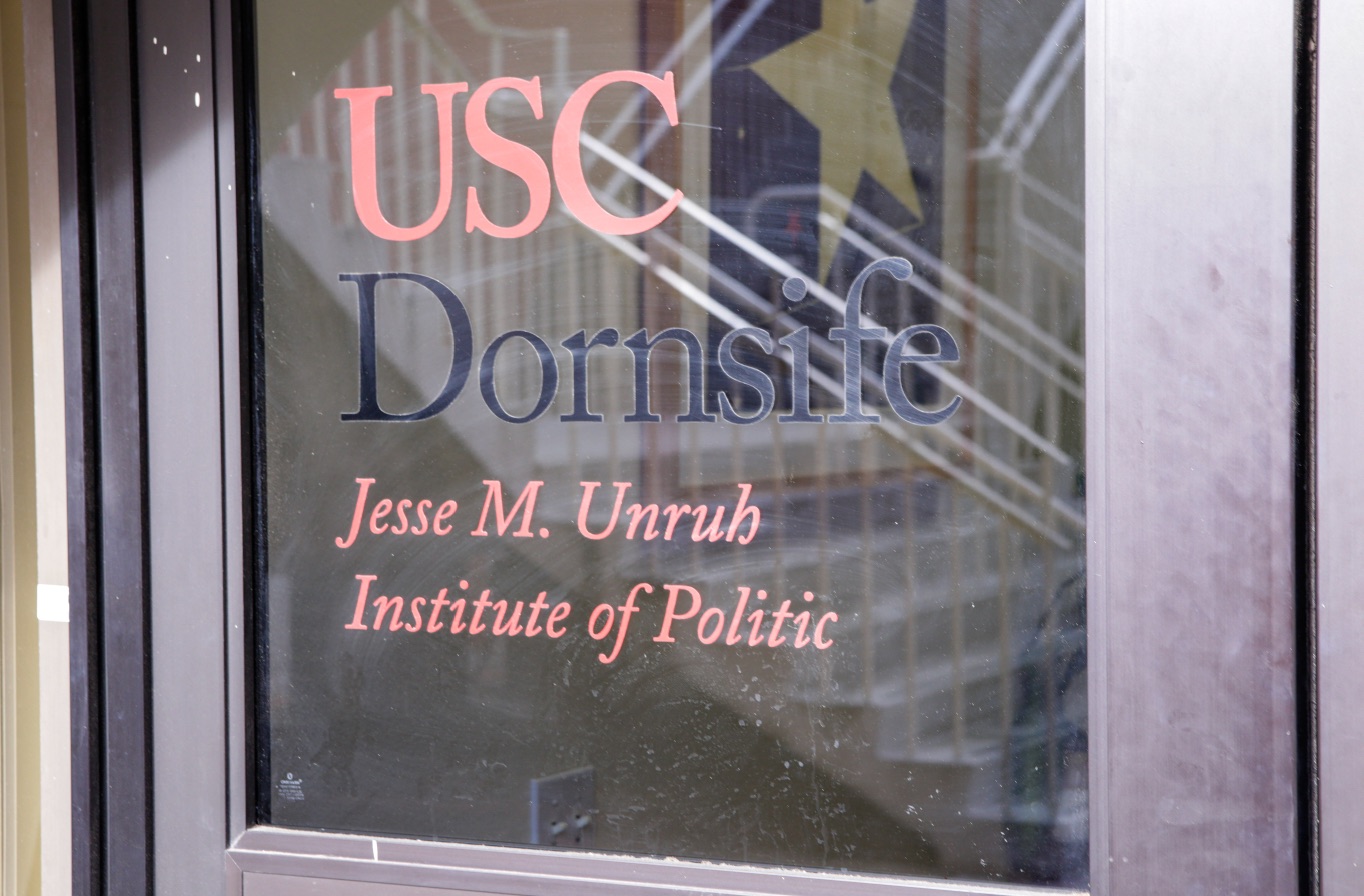Dornsife center announces spring fellows

The Center for the Political Future selects a Democratic and Republican fellow to promote bipartisanship. (Josh Dunst/Daily Trojan)
The Center for the Political Future selected Bernie Sanders’ former press secretary Symone Sanders and Mike Madrid, a principal at a California-based campaign management and lobbying firm, as the Spring 2019 fellows to teach courses about current political issues and share career advice this semester.
Sanders will teach a course on the future of the Democratic Party, while Madrid will focus on how demographic changes in race, class and partisanship are affecting American politics.
Sanders said she plans to teach students about the basic makeup of the Democratic Party, so they can analyze how the party is affected by changing demographics and millennial voter trends throughout the upcoming presidential primary and future elections.
“Even if they’re not going into politics as a career, these folks will be voters,” Sanders said. “I think a more informed electorate that can better analyze both of the political parties and think more critically about what it means to participate in civic engagement [goes toward] a better electorate.”
As an undergraduate, Madrid said he had the opportunity to study Latino voter trends, which led him to pursue a career in politics in California. He said he hopes to teach students about how California has previously handled and continues to adapt to demographic changes.
“I recognize that we’re just in the [instruction point] now with the racial and demographic changes that are going to start happening nationally along with the economic divide, which is so prevalent in California but also nationally,” Madrid said. “There’s a lot that we can learn throughout the country that [lies in] what California has done and is going to do.”
Madrid also plans to invite professionals to visit his classes to give career advice and network with students.
Outside of classes, the fellows will also host various events to interact with students from across the University. Robert Shrum, director of the Center for the Political Future, said weekly events like Politics and Pastries, roundtable discussions and office hours allow small groups of students to discuss political issues or ask for career advice from Sanders and Madrid.
“We wanted to do a number of different things that helped to advance the goal of promoting civil dialogue and having dialogue where we respect each other and we respect the truth,” Shrum said. “The fellows program focuses on students and how students can interact with fellows and what they can learn about the practical side of politics from people who have been at the center of politics in the country.”
Gentry Collins, a Fall 2018 fellow who taught a class about the future of the Republican Party last semester, shed light on the unique opportunities presented in the course.
Collins said that students took advantage of office hours and other out-of-class opportunities to discuss class material, currents events and professionalism with him. At some events, Collins and the Fall 2018 Democratic fellow Dan Schwerin discussed their views on issues and answered student questions.
“I thought the interaction with the students was, without exception, remarkable,” Collins said.
“The level of engagement, the quality of student, the respectfulness of the dialogue across party lines, and I think across ideological lines. Without exception, my experience with the students on campus was extraordinary, and the chance to be a small part of their time at USC was a real privilege for me.”
According to Sydney Lopes, a fellows coordinator at the Center for the Political Future, they aim to hire one Democratic and one Republican fellow each semester to promote bipartisan discussion of current issues. In future semesters, she said the Center hopes to host more fellows from various backgrounds, such as journalists, professionals from nonprofits and NGOs and international politicians.
“We are a bipartisan political institute, so it is important to us that we are having different voices coming in for students to hear,” Lopes said. “It really shows you that even though you might see a lot of fighting on cable news and in the news in general, when you have two really respectful people sitting down discussing an issue, dialogue absolutely can be civil and you can have a productive conversation.”
